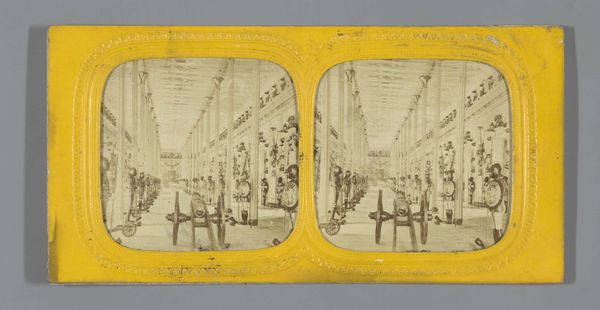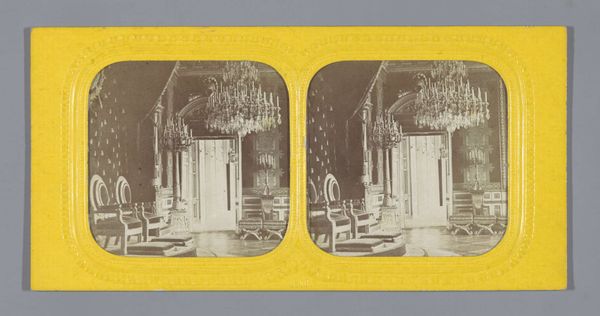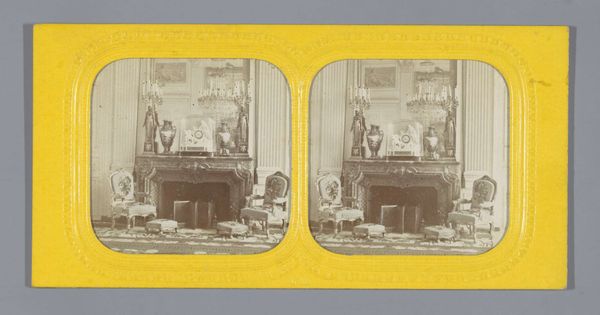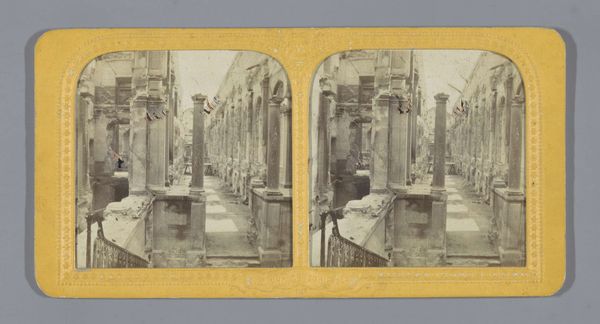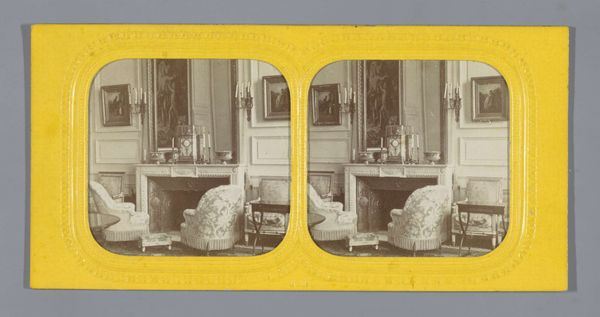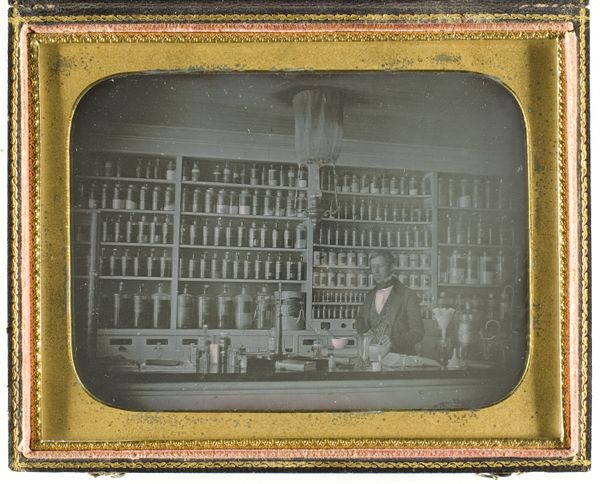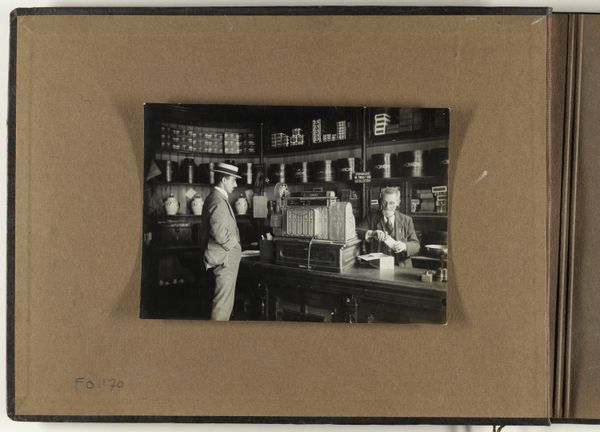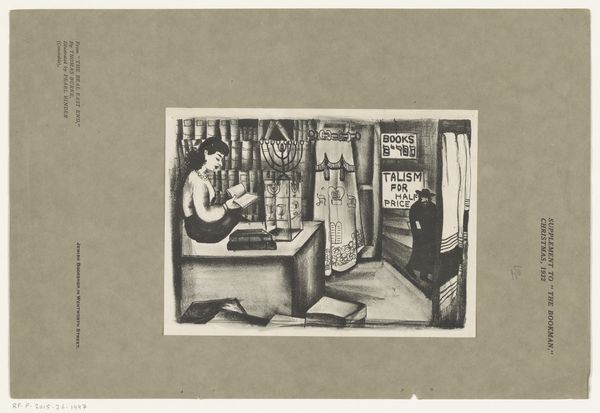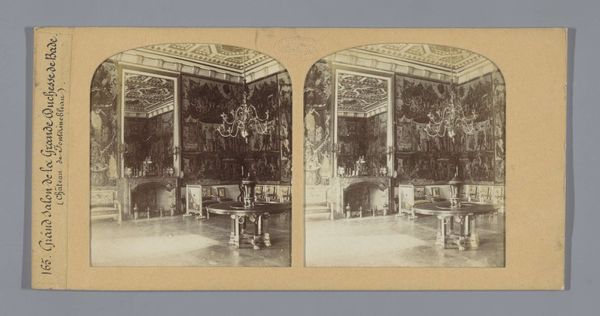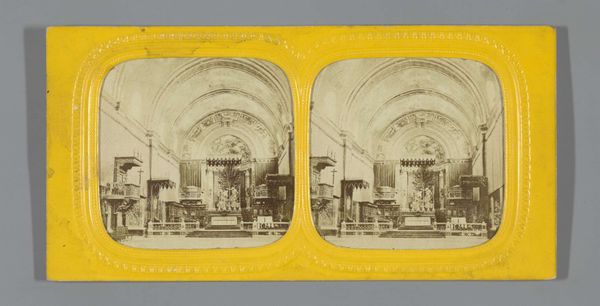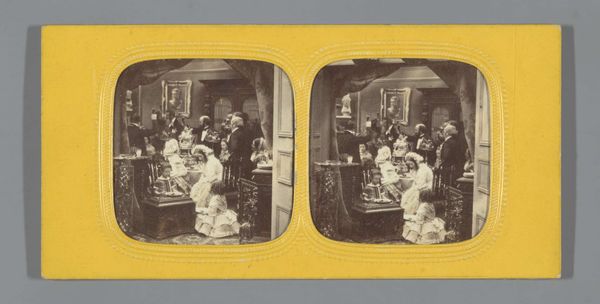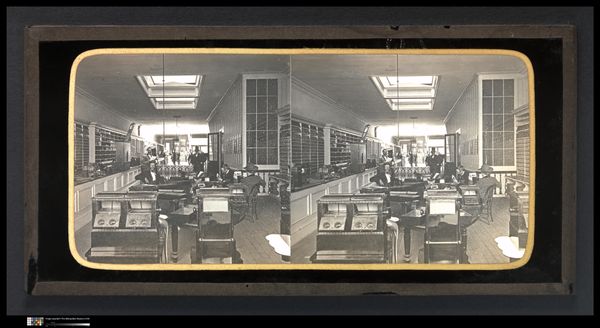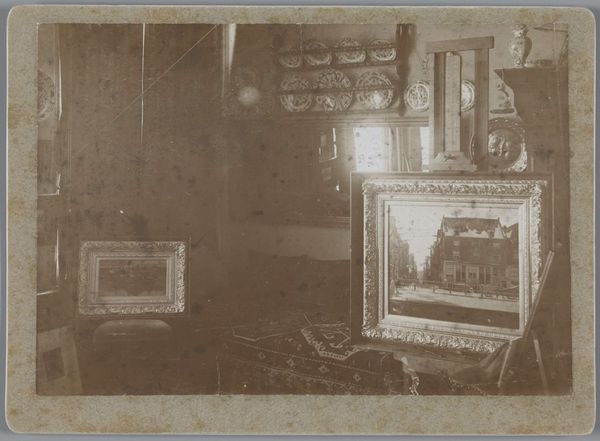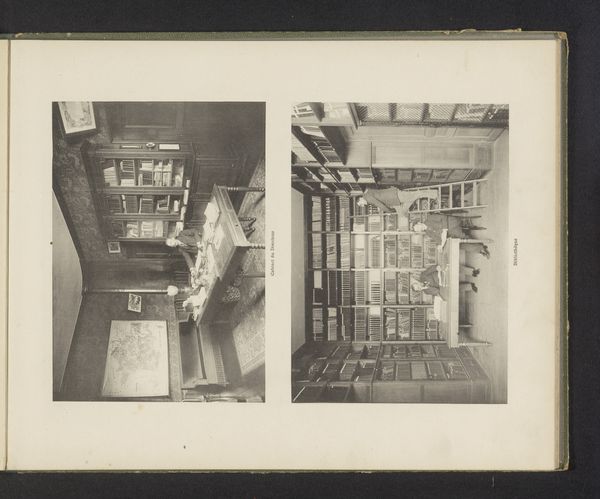
photography
#
still-life-photography
#
16_19th-century
#
decorative element
#
old engraving style
#
ancient-egyptian-art
#
photography
#
ancient-mediterranean
#
france
Dimensions: 6.5 × 6.6 cm (each image); 8.6 × 17.5 cm (card)
Copyright: Public Domain
This stereograph, made in the 19th century, offers a dual perspective of the Egyptian Sarcophagi room at the Louvre. The image gives us insight into the early history of museums. Looking closely, we see that the sarcophagi, once sacred vessels for the afterlife, are now behind railings like exotic specimens. The stereograph, which was popular in Europe and the United States, catered to a growing appetite for entertainment that was also educational. This interest in ancient cultures occurred during a time of extensive colonial activity, so the acquisition and display of Egyptian artifacts in institutions such as the Louvre reinforced Europe’s dominance over other cultures, creating a visual narrative of Western superiority. Understanding the full implications of images like this requires delving into the archives. Museum records, colonial documents, and even popular literature can reveal the complex relationship between art, power, and cultural identity. The meaning of the image resides in its historical context.
Comments
No comments
Be the first to comment and join the conversation on the ultimate creative platform.
